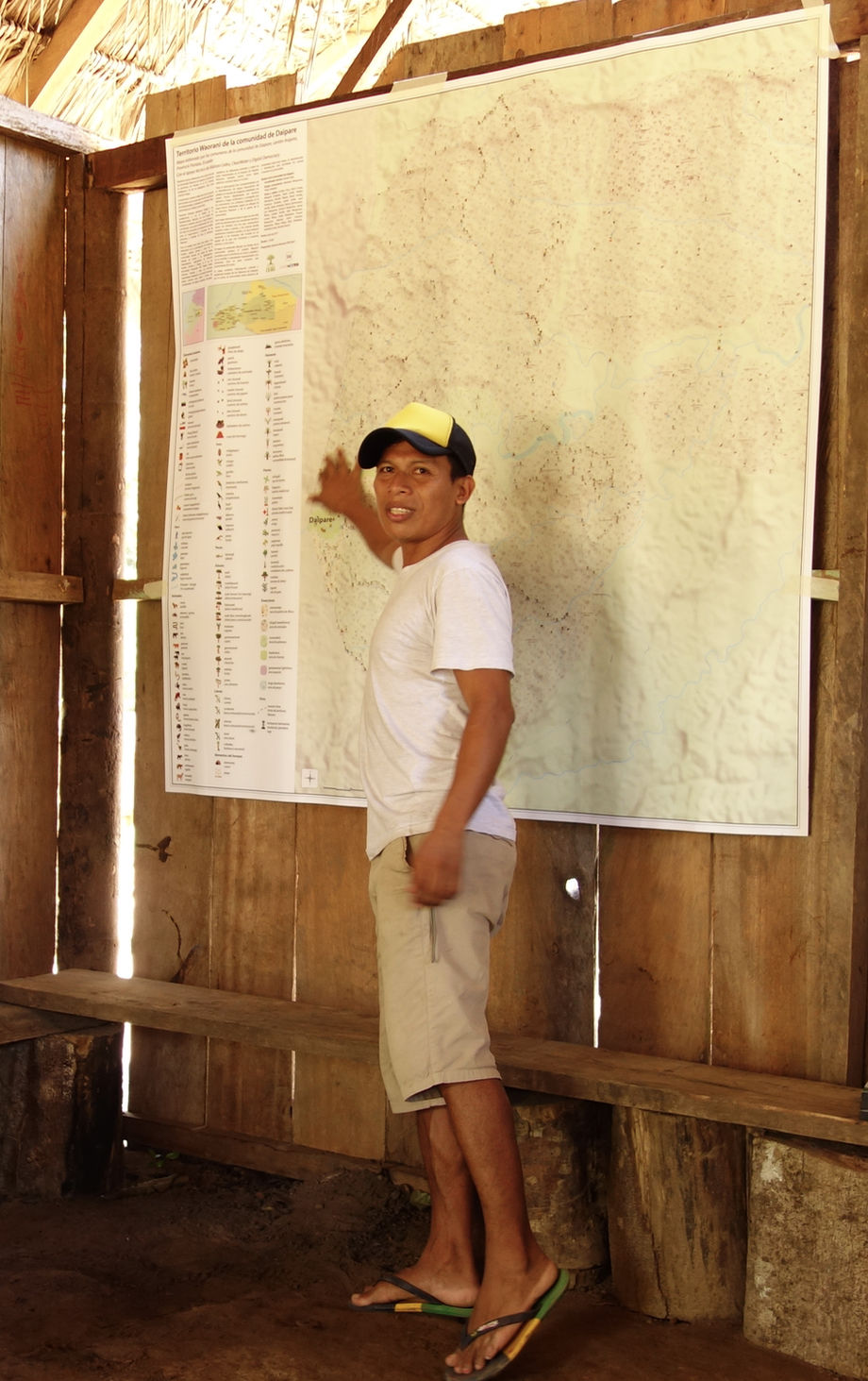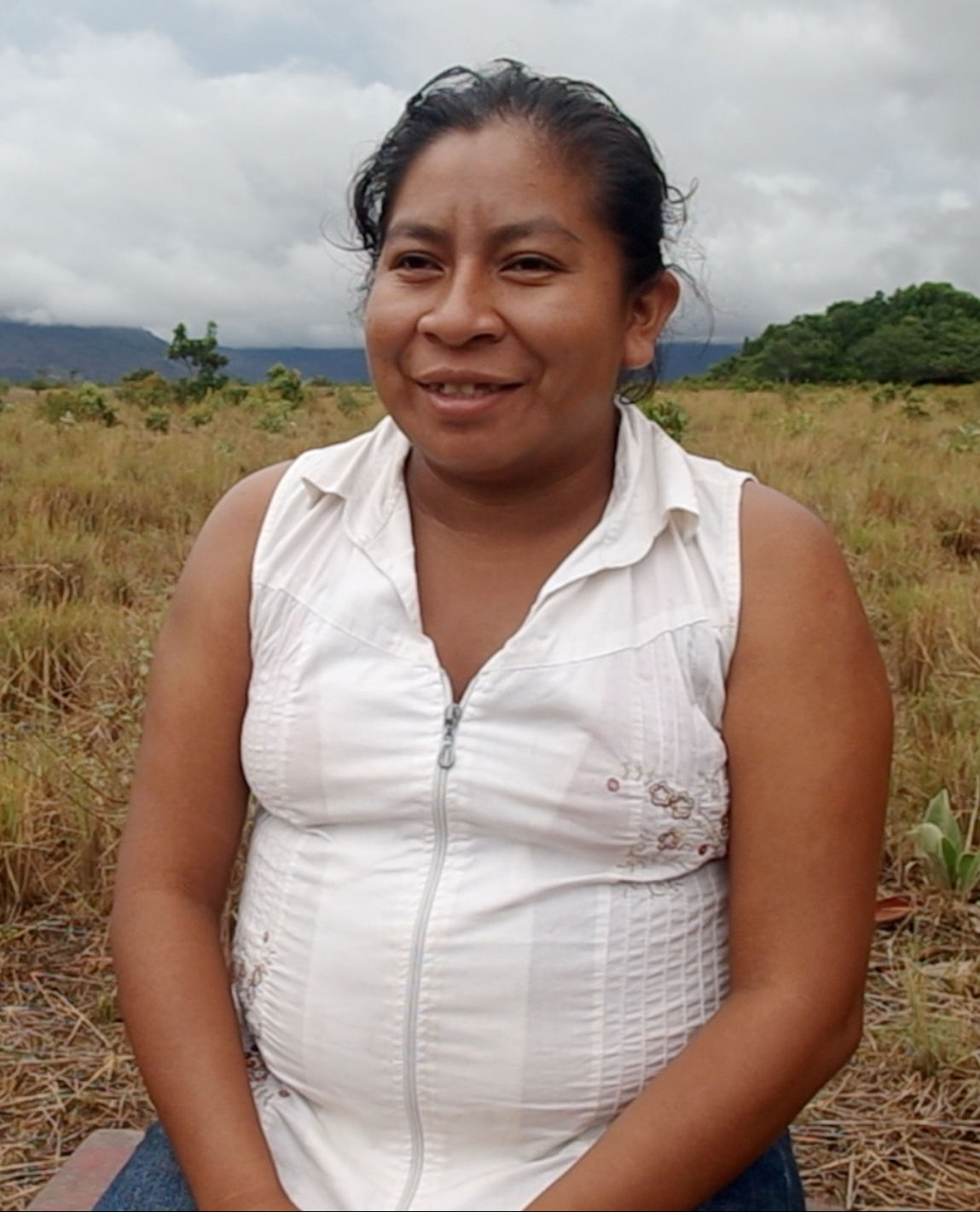author: Aliya Ryan
date: 2018-08-09
slug:
title: "Partner Spotlight: International Indigenous Peoples Day"
wordpress_id:
categories: – blog
image: https://images.digital-democracy.org/assets/wao_mapping-1600@2x.jpg
–
Today, August 9, is International Indigenous Peoples Day. To celebrate, we’ll be sharing a series of posts in the next few weeks introducing you to some of the people whom we are proud to count amongst our friends and colleagues.
At Digital Democracy, we work to support the leadership and sovereignty of indigenous people. It is their strength of vision and tireless work that inspires us to write code, design interfaces and build tools they can use to map and monitor their lands, thereby protecting their cultures for the future. We build our tools with our local partners, including Tessa Joseph and Opi Nenquimo, who are profiled below. This means we work to involve them as much as possible in the design and development process, to ensure that the solutions we build together are based on real needs.
Meet Opi Nenquimo, Waorani Director of Territory at Alianza Ceibo, and Tessa Josephs, a Makushi woman who is the Monitoring Coordinator for the South Rupununi District Council, the first of three profiles we will be doing about our partner’s critical work.
Waponi!

Tell us a little about yourself? My name is Oswando Nenquimo, but everyone calls me Opi. I’m 35 years old. I am Waorani and I grew up in the community of Nemonpare, in the Amazon in Ecuador. I’ve been working with the mapping team since 2015.
What inspires you? I’ve always been inspired to help the Waorani nation to organize itself and regain its autonomy, and I’ve spent a long time wondering how to best protect our territory. The Pastaza river basin where I grew up inspires me because it has not yet been affected by oil extraction or other major threats. I want to defend it. I have always dreamed and had the vision that my people should be happy and live freely and peacefully within our territory.
Where does your strength come from? As Waorani we always have visions and dreams that guide our life in the jungle, and in this we follow in the steps of our ancestors who also had dreams and visions. They inspire us. We always speak of the pikinani – the elders, ancestors and warriors who give us our vision.
How do you work with Digital Democracy? Digital Democracy is an important ally to the Waorani team as they provide us with technical support in order to learn and use equipment to defend our territory. It’s important, not just for us but for all the communities who need these kinds of tools. I have learned new things, how to use a GPS and how to make maps on the computer, which has been one of my favorite parts of the mapping work. We are making maps to show the world all the richness and diversity that we Waorani have on our land. We are making printed maps, digital maps and web-maps. We want to share these with the world, and show how we are collecting and recording our knowledge with the help of technology.
Something you want to share with us? I have heard many songs from the women in villages throughout Waorani lands who sing when we arrive, and talk about people who have come from afar. I don’t know the words exactly but one song tells of a parrot that is flying from a really long way away towards our green territory. It stretches its wings wide like a condor and eventually arrives. The parrot sits on a branch and sings, and starts building a nest, and then later its babies are born. This is how people talk about people arriving from Digital Democracy and bringing the technology. It’s a really long song, one of many that I have heard different women sing.
Learn more:
- Read Opi’s article on Waorani Mapping, published by the Universidad de Mexico – in Spanish
- Explore the Waorani Resistance Map and Campaign on the Amazon Frontlines Website
- Explore the Waorani Territory Map on the Alianza Ceibo website
- Read blog posts on the Alianza Ceibo website – in Spanish
- Read more about Dd’s mapping work with the Waorani
Note: Opi’s interview has been translated from Spanish
Miyaremang!

Tell us a little about yourself? I’m Tessa and I’m mixed tribe – Makushi and Wapichan – from Guyana. But I feel more Makushi tribe and speak Makushi because I grew up with my grandmother. She taught me all the traditions and knowledge, and I know about the history of my land from her. To me, to be indigenous means that we belong to the land. Our ancestors left it for us and we share its history, we have survived with it.
What inspires you? I work with the South Rupununi Toshao Council to protect and look after our land. This is important because our grandparents left us our land in a good and natural state. If we don’t take care of it, who will? There are lots of companies now who are trying to develop our country by destroying the forest so it is up to us to keep it alive and keep it going. That is what inspires me; my grandfather was a chief for many years and I’m inspired to carry on his work.
How do you work with Digital Democracy? The work with Digital Democracy is helping us to map out our lands and digitize our information. We are using technology to see what is happening on our lands, like gold mining in the mountains. We use the map and drones to go overhead and look at our forests and see if they are still healthy or if something is going on. I like using technology and feel comfortable with it. I didn’t learn about tech in a college or university; I learned about it first with the Digital Democracy team, and I’d like to learn more about it. Technology changes every day, and I’d like to learn more about developing software and writing commands because right now we are dependent on people coming from the outside to do this for us.
Something you want to share with us? We hold many important traditional beliefs about the forest which, together with shamanic power, can be used to help conserve it. These beliefs inspire me to continue to protect it because our forest is sacred to us, it is our home. I don’t want to wake up one morning and find it has disappeared. I want my sons and their sons to grow up and be able to see it and enjoy it. For me, living in my home and seeing all the beauty in it, and having enough food from it, makes me happy, and makes me want to continue to live and protect my land. So learning all the traditional beliefs, and knowledge of the forest spirits, the land and water spirits inspires me to protect them so they will be there always for the future generations.
Learn more
- Video interview with Tessa
- Learn about the vision of the South Rupununi District Council on their website
- Explore the monitoring map and satellite imagery of Makushi & Wapichan territory
- Read the Digital Democracy blog post on work in Guyana
Thank you for reading Opi and Tessa’s stories. Stay tuned for more profiles next week!